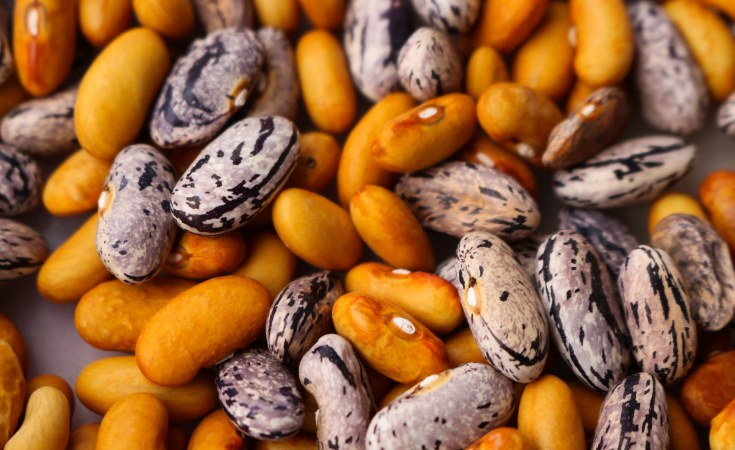There is a need to urgently devise ways to significantly boost food productivity if the country is to achieve its food security targets, experts and farmers say.
They say one of the key bottlenecks facing the sector is lack of results-oriented research and called for increased funding in that area.
The issue is even more pressing considering that the average farm size in Rwanda is 0.5 hectare, with stakeholders calling for deliberate efforts to boost productivity on limited farmland.
This, they say, will be critical in helping Rwanda achieve its food security targets and fix issues related to pockets of hunger that emerge in different parts of the country from time to time.
Alphonsine Nzamwita, a farmer in Gatsibo District, told The New Times that food insecurity is still a challenge, noting that crop productivity has not been as good as expected.
"When the last rains came they washed away some of the crops. And it became worse when the dry spell came," she said, adding that his produce was reduced by 30 per cent as a result.
"That is why some people in our district are complaining of hunger," she said, adding that the low productivity has triggered a hike in food prices. She said: "The farm gate price for a kilogramme of beans, for instance, goes for Rwf650, up from Rwf400 previously. As a result, some of the retailers sell a kilo at over Rwf700."
There is a need to scale up subsidised small-scale irrigation for smallholder farmers, she said.
Hadija Munganyinka, another farmer in Kayonza District, also said she has struggled to put food on the table in recent days.
"Since January we haven't really had reliable rain," said the mother of three.
Concorde Ngoga, a 64-year-old farmer in Ndego Sector in Kayonza, said the government came to their aid with food relief late last year following harsh drought conditions.
"I lost over 80 per cent of what would have been my harvest due to drought," he said.
Statistics show that 15 per cent of Rwandans are still food insecure due to different factors, including dry spells.
Food insecurity is defined as the disruption of food intake or eating patterns because of lack of money and other resources.
Covid-19, climate change effects
Jean-Chrysostome Ngabitsinze, the Minister of State in the Ministry of Agriculture and Animal Resources, said that Covid-19 slightly affected food security, while climate change effects have also been disruptive.
"We do research every three years on food security status and the recent one shows that Rwanda is about 85 per cent food secure," he said. "Before Covid-19, we were at over 86 per cent."
Ngabitsinze explained that, despite the impact of Covid-19, Rwanda hopes to eliminate food insecurity over the next five years.
"Being food secure means people being able to have a meal three times per day," he said. "We still need to put in more effort to be 100 per cent food secure."
He admitted there was a need for a holistic study into the matter.
Officials pointed out that drought and heavy rains affected maize and bean production, especially in Eastern Province.
Beans production in the province shrank by 2 per cent, while maize production decreased by 0.6 per cent, from 378,000 tonnes last year to 357,000 tonnes, they say.
Irrigation, quality agro-inputs
Ngabitsinze said irrigation will remain key to attaining food security targets, warning that climate change effects pose a real challenge.
"We are mainly banking on scaling up irrigation and quality seeds to reach our targets," he said, particularly citing the role of hillside and small-scale irrigation schemes.
According to Rwanda Agricultural and Animal Resources Development Board (RAB), as of last year, the total area currently under irrigation stood at over 67,100ha -including over 37,273ha of marshlands; 9,439ha of hillside and 20,388ha of small-scale irrigation technology.
The country seeks to irrigate 102,284 hectares by 2024.
It is also hoped that at least 75 per cent of farmers will be using quality seeds on consolidated land by 2024.
Today, 60 per cent of farmers use quality seeds on consolidated land, according to officials.
Meanwhile, the government hopes to see more youth join the sector to help professionalise it and boost productivity.
The average age of farmers in the country stands at 55 and agricultural experts fear that this is likely to drive down productivity if nothing is done to reverse the trend.
Young people are also seen as the key to truly transforming the sector through innovation.
However, a recent study indicated that only 18 per cent of the youth in the sector employ agric-tech innovation.
Another sticking issue that dogs the sector is limited research.
Pierre Claver Rutayisire, the Principal of College of Business and Economics at University of Rwanda, said there is a need for agricultural research that responds to community problems.
"With the average farm size in Rwanda at 0.5 hectares, there is a need for research on how best to increase production on small plots of land," he said.
According to a recent study by the local government, 1.5 million Rwandans, or 16 per cent of the population, have no means to own or rent homes of their own and can hardly put food on the table.
In the recently approved national budget for the 2022/23 fiscal year, Rwf150 billion was allocated as direct investments into agriculture, equivalent to just over 3 per cent of total budget. Government says there are additional indirect investments that will impact the sector over the next one year, including proposed infrastructure projects like roads.
editor@newtimesrwanda.com
Follow MichNkurunziza


